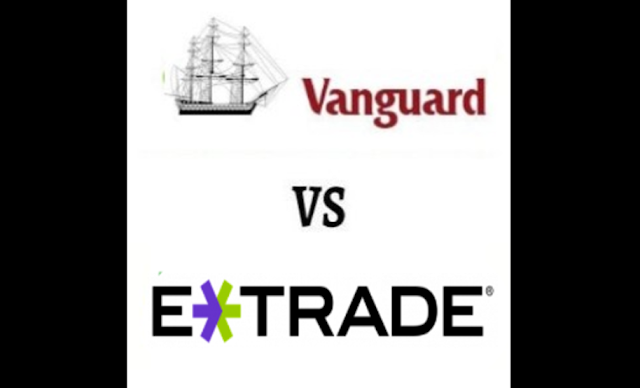Comparison of E*TRADE vs Vanguard
Investing is one way to build wealth and achieve long-term financial goals. In the world of investing, two platforms that are often compared are E*TRADE and Vanguard. Both offer a wide range of investment services, but have significant differences in various aspects.
History and Background of E*TRADE
E*TRADE was founded in 1982 with the aim of providing easy access to the stock market for individual investors. The company began developing its online platform in the 1990s and has since become one of the world's leading online brokers.
History and Background of Vanguard
Vanguard was founded in 1975 by Jack Bogle, a visionary in the world of investment. Vanguard is known for introducing the concept of index funds and espousing a low-cost investment philosophy.
Services Offered by E*TRADE
E*TRADE offers a variety of services including a sophisticated online trading platform, investment accounts such as brokerage accounts, IRAs and other retirement accounts.
Services Offered by Vanguard
Vanguard is best known for providing a wide variety of investment funds, including index funds and ETFs, as well as retirement accounts such as IRAs and 401(k).
Comparison of Fees and Commissions
One important factor in choosing an investment platform is the associated fees and commissions. E*TRADE and Vanguard have different fee structures, including transaction fees, management fees, and other fees.
Comparison of Investment Options
E*TRADE offers a wide variety of investment options including stocks, bonds, mutual funds and more. On the other hand, Vanguard is best known for its focus on index funds and ETFs that allow investors to diversify their portfolios at low costs.
Customer Service Comparison
The quality of customer service can impact a person's investment experience. E*TRADE and Vanguard both have a good reputation for customer service, but there may be differences in responsiveness and support availability.
User Experience and Interface
An intuitive and user-friendly user interface can make the investment experience more enjoyable. E*TRADE and Vanguard have user-friendly online platforms, but features and interface designs may differ.
Security Comparison
Security is very important in online investing. Both platforms offer a variety of security features including data encryption, two-factor authentication, and asset protection.
Educational Resources Offered
Education and knowledge about investing can help investors make better decisions. Both E*TRADE and Vanguard provide educational resources such as articles, videos, and webinars on a variety of investment topics.
Mobile App Comparison
In today's digital era, the ability to trade and track investments via mobile apps has become increasingly important. Both E*TRADE and Vanguard have well-designed mobile apps that allow easy access to investment accounts.
Advantages and Disadvantages of E*TRADE
E*TRADE has advantages in terms of ease of use of the platform, wide range of investment options and advanced trading tools. However, disadvantages include fees that may be higher compared to some alternatives and a lack of focus on index funds.
Pros:
- User-friendly platform, great mobile app
- $0 commission stock and ETF trades
- Extensive research and education resources
- Options for active traders (futures, options trading)
Cons:
- Higher fees for non-stock/ETF trades
- $500 minimum deposit
- Less emphasis on retirement planning tools
Advantages and Disadvantages of Vanguard
Vanguard is known for its low fees, broad investment options, and long-term oriented approach. However, disadvantages include a lack of access to advanced trading tools and a lack of variety of active investment products.
Pros:
- Rock-bottom expense ratios on mutual funds (especially their own)
- $0 commission stock and ETF trades, commission-free trades on many Vanguard mutual funds
- No account minimums
- Strong focus on retirement planning tools and target-date funds
Cons:
- Less user-friendly platform compared to E*TRADE
- Mobile app is good, but not as strong as E*TRADE's
- Limited selection of non-mutual fund investments
- Not ideal for active traders (limited options trading platform)
Conclusion
Choosing between E*TRADE and Vanguard depends on personal preference, investment goals, and investing style. Both platforms offer their own benefits and drawbacks, and it is important to conduct in-depth research before making an investment decision.
FAQs (Frequently Asked Questions)
Is E*TRADE or Vanguard better suited for beginner investors?
E*TRADE may be better suited to novice investors looking for an easy-to-use trading platform and a wide range of educational tools. On the other hand, Vanguard can be a good choice for novice investors who want to start with index funds and focus on long-term investing.
Does E*TRADE or Vanguard have better customer service?
Both have a good reputation for customer service, but there may be differences in the level of responsiveness and availability of live support.
Is E*TRADE or Vanguard better for retirement planning?
Both E*TRADE and Vanguard offer various types of retirement accounts including IRAs and other retirement accounts. The best choice depends on individual preferences and investment strategy for retirement.
Is E*TRADE or Vanguard better when it comes to investment education?
Both provide rich educational resources such as articles, videos and webinars on investing. However, E*TRADE may focus more on educational tools that are interactive and easily accessible.
Is E*TRADE or Vanguard better suited for active stock trading?
E*TRADE is often considered more suitable for active stock trading due to its advanced platform and comprehensive trading tools. Meanwhile, Vanguard is better suited to investors who prefer a long-term buy and hold approach.

